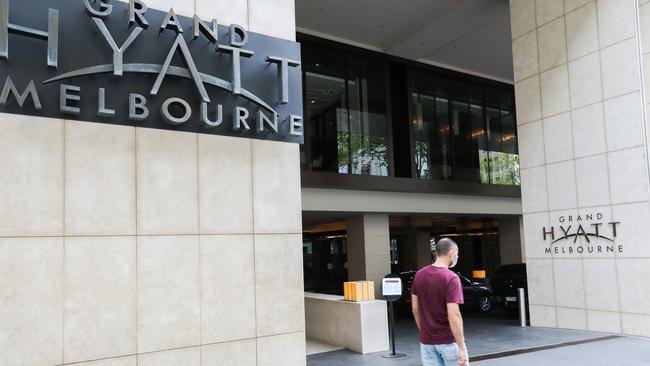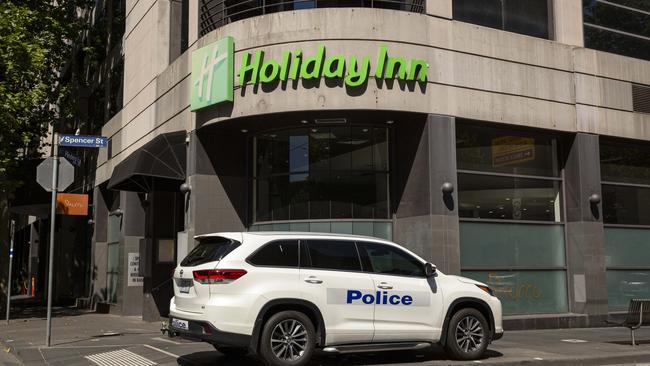Quarantine hotels to be overhauled to curb COVID spread
Victoria’s quarantine system has been revamped to create a buffer between rooms as fears grow over the spread of coronavirus.
Coronavirus
Don't miss out on the headlines from Coronavirus. Followed categories will be added to My News.
Victoria’s quarantine system has been overhauled to create a buffer between hotel rooms containing large families, in a bid to reduce the risk of infection spread.
More than 100 rooms have been removed from use this week, since returned travellers in two rooms who never crossed paths somehow passed between them a mutant UK coronavirus strain at the Park Royal Hotel.
One of the rooms housed a family of five and was described as having an extremely high “viral load” by authorities.
That case has overshadowed by a community outbreak of COVID-19 at the Grand Hyatt, where a 26-year-old hotel worker became the first non-returned traveller to contract the virus in almost a month.
Both cases are causing headaches for authorities, with a review of ventilation in quarantine hotels also being carried out due to the uncertain nature of how the virus was transmitted.
In good news on Friday, the hotel worker case has not yet been linked to other infections, with most of his close contacts already returning negative results.
Forensic cleaners worked at North Point Cafe on Friday, one of the locations the worker had visited.

There were zero new community transmission cases reported on Friday, while three new infections were identified in quarantine.
Chief Health Officer Professor Brett Sutton praised the 14,612 people who rushed out to be tested yesterday but said it was too early to determine whether efforts to contain the virus had worked.
The Saturday Herald Sun can reveal that quarantine officials have now moved to segregate large families at hotels since the outbreaks.
This means that rooms have been taken out of use if they are across the hall from, or next to, a room containing a family group.
The concept is similar to at sporting grounds where a seat is left empty between each group of spectators.
Ventilation is also a key focus of an ongoing investigation into the cases, due to concerns the virus had spread via aerosol transmission.
Although many of Melbourne’s quarantine hotel rooms are equipped with hospital-grade airconditioning systems which better filter air and do not allow it to be shared between rooms, Prof Sutton on Friday conceded not all had the most stringent ventilation.
Hotels chosen for use in Victoria’s rebooted COVID quarantine program were selected with ventilation safety as one of the major requirements, however, including “hot hotels” where all confirmed positive cases are housed.

A COVID-19 Quarantine Victoria spokeswoman confirmed hotel rooms were equipped with ventilation systems that ensured there is no shared airflow between resident rooms and common areas but a review was ongoing.
She said engineering and health experts inspected rooms before the program restarted and this led to upgrades at one health hotels before it became operational.
“There is no shared airflow between resident rooms and common areas where staff interact,” she said.
The Holiday Inn Flinders Lane — which acts as a “hot hotel” to house guests after they are confirmed to have COVID-19 — also had its airconditioning units replaced based on advice from The Alfred Hospital.
Burnet Institute epidemiologist Professor Mike Toole said preventing a third wave of infection rested with preventing the virus escaping hotel quarantine.
“The vaccine rollout if going to take out at least a year to develop population immunity. The only protection from having a third wave is to make sure the virus doesn’t get into the country, or at least beyond the walls of a quarantine hotel,” Prof Toole said.
“That’s where the resources should be going. That’s where the policy should be aiming at.”




